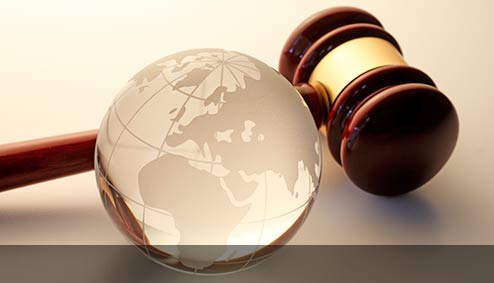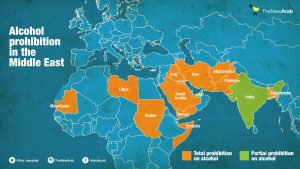International law is the set of rules, agreements and treaties that are binding between countries. When sovereign states enter into agreements that are binding and enforceable, it’s called international law. Countries come together to make binding rules that they believe benefit their citizens. International laws promote peace, justice, common interests and trade.
International laws apply to governments. It’s up to each state government to implement and follow international laws. A country’s laws apply to citizens and other people that are present in the country. However, it’s up to the country’s governing authority to apply international law and keep their agreements with the other countries that are involved.
• What does international law involve?
International law might address and regulate any of the following issues:
Human rights
Treatment of refugees
Prosecution for international crimes
Arms agreements and controls
How states can claim new territories
Regulating common spaces like water and outer space
Trade between states
Preventing war
When it’s okay for a state to use force
Fair treatment of prisoners
Preserving the environment
• International Law and State Sovereignty
One of the complex issues in international law is the issue of sovereignty. That’s the idea that the state is supreme, and that a state isn’t subject to the rules of any other country or body. It’s the idea that one country can’t tell another country what to do. State sovereignty is a relatively new concept in history that rose as more governments organized themselves into states in the 18th and 19th centuries.
Because of the notion of state sovereignty, international law may only be as effective as the extent of the country’s true, honest participation in making and following the international laws and treaties that they agree to. To the extent that a state may halfheartedly participate in an international agreement only with the hope of making other countries happy, enforcing international law can be a challenge. Some countries might claim to follow an agreement while skirting the rules, and others might not even try to hide their failure to follow the international agreements that they’re a party to. International leaders, philosophers and politicians continue to debate the authority and enforceability of international law in light of modern state sovereignty.
• Sources of International Law
International law generally comes from three sources: treaties, customs and general principles of law. Treaties are express agreements that countries enter into voluntarily. They’re written agreements. The Vienna Convention on the Law of Treaties of 1969 calls for interpretation of treaties based on the plain language of the words in the treaties. The context of the words and the presumption of good faith and good intentions can also play a role in interpreting a treaty. Iran signed the Vienna Convention on the Law of Treaties in 1969.
Customs are common practices between countries. They’re common practices that are so expected and consistent that countries operate with the belief that the custom is legally required and binding. Examples of customary law are the prohibitions of a state using or condoning genocide or slavery. Generally, as long as a state doesn’t object to a customary law, it applies to that state.
Finally, principles of law are general rules of law that develop over time. Principles of law are an understanding of how the law should work based on past rulings. In addition to looking at past rulings, international courts can also look to judicial opinions for help identifying and interpreting international law. Just like other judicial bodies look to case law and scholarly treaties, international courts and others interpreting international law may look to these sources for authorities on interpreting international law.
• International Tribunals
International tribunals exist to hear and adjudicate disputes and violations of international law. There are several international tribunals with varying authority. Notable international courts include the United Nations Security Council and the International Criminal Court.
Some international courts exist on a permanent basis. In other cases, member states set up a tribunal for a limited period of time to resolve a certain issue or conflict. A court might be set up to hear disputes surrounding a limited subject such as nuclear activity. In other cases, a court might have general jurisdiction to hear any kind of international issue or human rights abuse.
• United Nations Security Council
The purpose of the United Nations Security Council is to keep the peace between nations. If they believe a nation has violated an international agreement or otherwise acted improperly, they have the power to authorize sanctions. The Security Council is a part of the United Nations. In its charter, the United Nations states that its purpose is to help each country find justice in international relations.
• International Criminal Court
The International Criminal Court (ICC) sits in the Netherlands. It’s a forum for prosecution of war crimes, genocide and crimes against humanity. The ICC has been in existence since 2002. It hears cases that are referred by countries that don’t want to prosecute a case domestically. The United Nations Security Council can also refer cases.
Court procedures are a mixture of criminal and civil law. A person that’s accused has many of the same rights that a person has when they’re accused of a crime in the United States. They have a right to a trial and the right to assistance of counsel. A defendant is presumed innocent until they’re proven guilty. Prosecutors must prove the guilt of the accused beyond a reasonable doubt.
The primary purpose of the ICC is to prosecute national leaders for serious violations of human rights. More than 100 countries are party to the ICC. However, Iran is not yet a party. The ICC can impose prison time. They don’t have the authority to give anyone the death penalty.
Iran has signed the Rome Statute of the International Criminal Court in 2002, but it hasn’t been approved yet in the Iranian Islamic Parliament.
Reference: Legal Career Path








